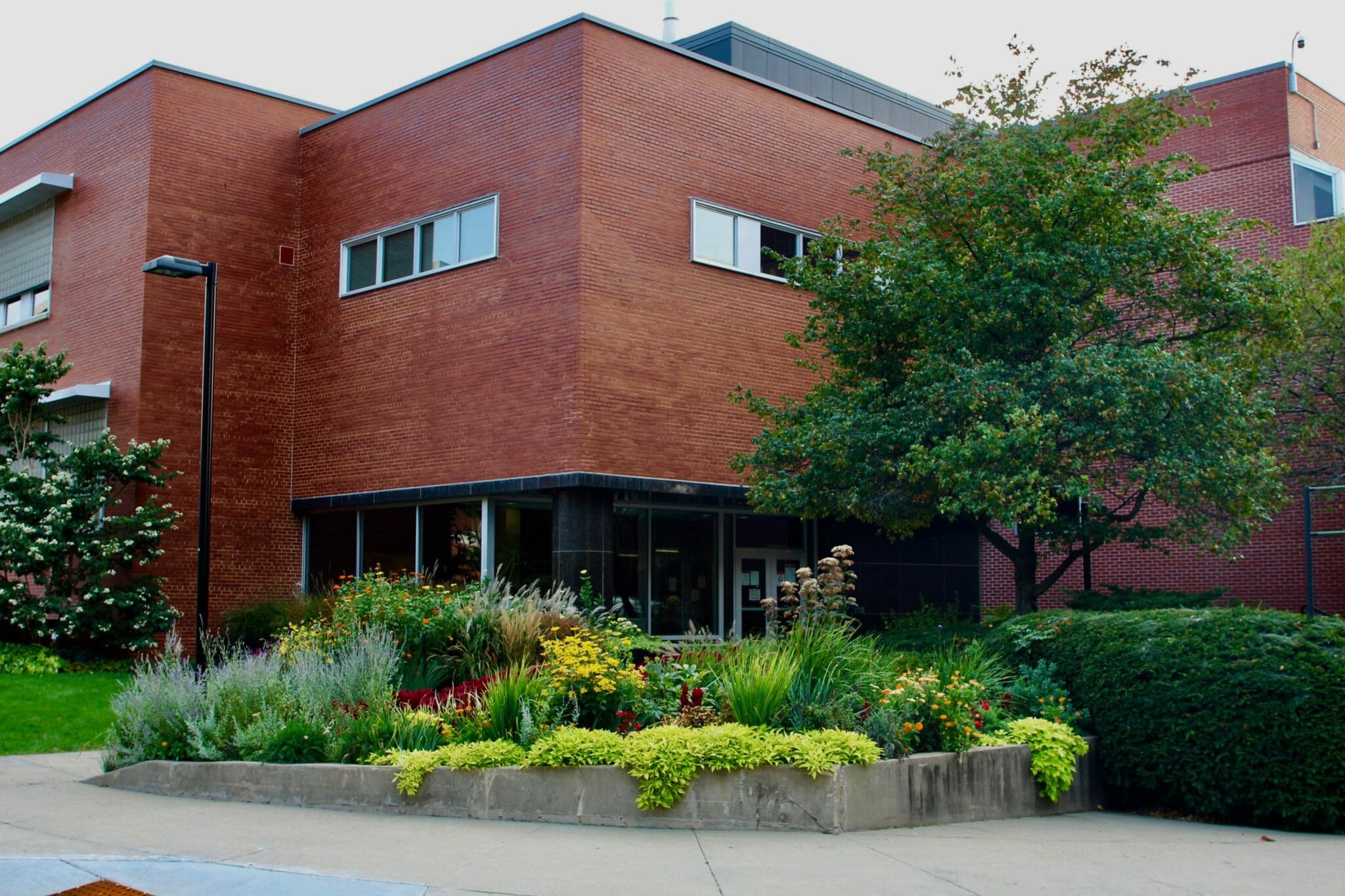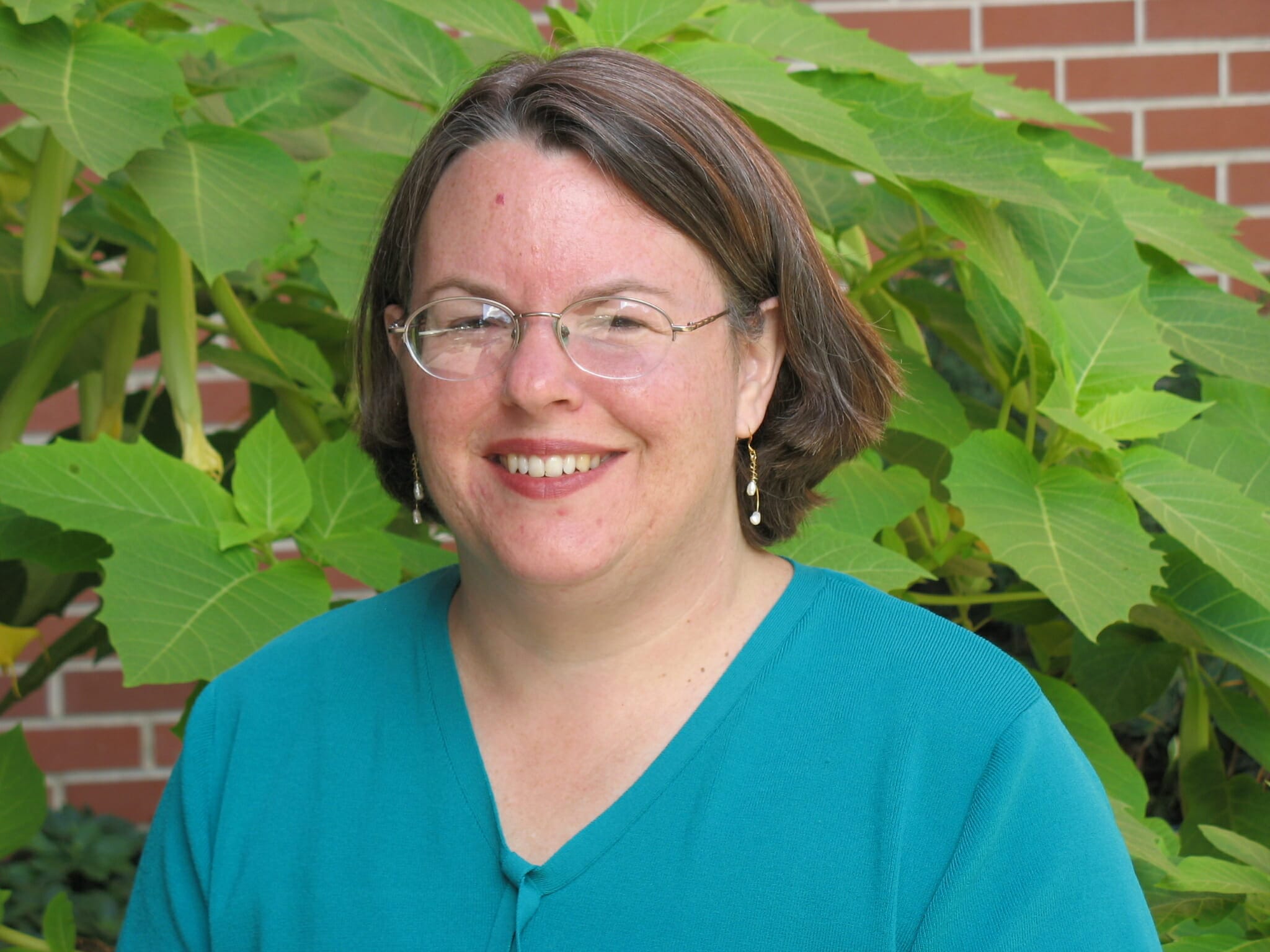UW-Madison Food Science
IMPACT Newsletter, Fall 2024


Greetings from the Chair
Dear Food Science Alumni and Friends,
As the saying goes, change is the only constant, and our department is certainly embracing that truth in the coming years.
This past summer, following Dr. David Eide’s retirement as Professor and Chair of Nutritional Sciences, our college’s Dean, Dr. Glenda Gillaspy, appointed me as the interim chair for the Nutritional Sciences department alongside my existing role in Food Science. Joining me in dual roles are my colleagues Marcia Verhage and Ray van Cleve, who now support both departments as Department Administrator and Building Manager, respectively.
These shifts reflect a larger vision from the college to merge our two departments into a single academic unit, though personnel will continue to work across our two separate buildings. Currently, a Merger Exploration Committee, composed of members from both departments, is examining the practical and aspirational aspects of this transition. This includes developing policies, creating hiring strategies, and setting a reasonable timeline for key milestones.
A novel part of the Dean’s directive is to explore new possibilities for nutrition and food science collaboration in teaching research. To that end, we’re consulting with leaders across the U.S. in funding, government, and academic who specialize at the intersection of human nutrition and applied food sciences. We’re eager to uncover new opportunities that may not have been considered before.
We’ll keep you updated as this process unfolds, and we invite your thoughts and questions in the coming year.
Stay in touch,
Scott Rankin
Creativity Update
Food Science Club
Spring 2024 semester was a titillating adventure for the Food Science Club as they proudly unveiled their latest creation: Honey Badger ice cream. This delectable flavor combines the sweetness of honey-flavored ice cream with crunchy graham cracker crumbles and rich chocolate chips.
Elizabeth Binversie, a senior in Food Science and the club’s outreach director, shared that the students aimed to craft a flavor that playfully references UW-Madison’ mascot. After brainstorming several options, the club unanimously decided on “Honey Badger.”
As a “Super Premium” ice cream, this creation boasts a vegetable-based stabilizer and a higher milk fat content than standard flavors, offer a rich and indulgent experience. The club also embraced sustainability by incorporating in-stock ingredients, such as graham cracker crunch and chocolate chips, reducing food waste and supporting eco-friendly practices at the Babcock Dairy Store.


Opportunity
Fermented Foods and Beverages Certificate
The Department of Food Science recently launched a new certificate in Fermented Foods and Beverages. The certificate, open to all UW-Madison undergraduate students, provides an opportunity for students to develop their skills and knowledge in the science, production and marketing of fermented food and beverages. The certificate was created with electives spread across a wide range of majors. Core courses do not have challenging pre-requisites outside of the certificate, and classes include relevant elementary concepts. The certificate introduces students to the practical side of food and beverage fermentation through introductory and hands-on coursework. Some of the products explored are sourdough, bread, kimchi, beer, wine, cheese, yogurt and sauerkraut. More information can be found here.
Community
Research Spotlight
2024 ADSA Fellow, Professor and Chair Scott Rankin The American Dairy Science Association (ADSA) named, Scott Ranking, Professor and Chair of Food Science, as a 2024 ADSA Fellow. The ADSA Fellow Award is to recognize members who have over 20 years of distinguished service in the dairy industry. 2024 Recipients were recognized on Sunday, June 16, 2024, during the opening session at the ADSA Annual Meeting in West Palm Beach, Florida.
College Bowl Champs!
On August 3rd, 2024, the Institute of Food Technologist (IFT) hosted the 2024 College Bowl Competition in Chicago, Illinois. The College Bowl is a two-team play off, each team consisting of four players. Players are then asked a series of Food Science related questions, from the history of food, to food law, to random food-related trivia.
This year, the University of Wisconsin-Madison beat California State Polytech University, Pomona in the finals. The players for UW-M are: Tori Budin (Team Captain), Philip Eberly, Lauren Smith, and Bea Sutton. Winner’s of the IFT College Bowl received $1,000 and partial reimbursement for team travel and registration to IFT FIRST. Congratulations!


Student Spotlight
Cameron Wicks




Cameron “CJ” Wicks, a PhD student in the University of Wisconsin-Madison’s Department of Food Science, is working on a new technology that adds naturally occurring compounds to ice cream to prevent it from wreaking so much havoc. “When you have normal ice cream, it will become a puddle of liquid in no time,” says Wicks. “However, we learned that adding polyphenols to ice cream can create a product that holds its shape for over four hours at room temperature. That’s pretty close to a no-melt ice cream.”
Polyphenols are compounds that are found naturally in foods like green tea, blueberries and cranberries and are known for their health benefits. By incorporating polyphenols into a standard ice cream recipe, Wicks was able to study how they interact with the ice cream’s milk fat and protein structures. Wicks found that as she added more polyphenols to ice cream it became thicker. Polyphenols don’t prevent the ice in ice cream from melting at room temperature.
Instead, polyphenols help the ice cream hold its shape, leading to fewer drips when left at room temperature. Wicks acknowledges that consumers currently expect ice cream to melt. Incorporating polyphenols into ice cream can also affect how it tastes, and Wicks is interested in investigating what an acceptable amount of polyphenols may be for a polyphenol-enriched ice cream — but that’s a project for another day.
Maggie Becher
Sound is an important sensory experience when consuming different food products. Think about the crunch of a potato chip – you can tell by sound cues, and the texture of the product, if it meets certain expectations that you have for the quality of the product. Similarly, squeakiness is something that many consumers expect when eating fresh cheese curds.
Squeakiness only lasts a few days to a couple of weeks after the cheese is made and depending on how the curds are stored and served.
A group from UW-Madison’s Center for Dairy Research, is working on a project with the goal of extending the squeakiness shelf-life of fresh cheese curds. Maggie Becher, a PhD student in the Department of Food Science in Dr. John Lucey’s lab, has been working on this project. Becher has been exploring different analysis methods, including a collaborative method with an audiology lab on campus to monitor acoustic properties of squeakiness. Different manufacturing treatments are also being explored for the squeaky curd.
While most cheese curds are Cheddar curds, the extensive acidification from the starter cultures may weaken the protein matrix, thus interfering with the squeakiness longevity of fresh curds. Therefore, Lucey’s group took inspiration from another type of squeaky cheese from Finland — Juustoleipä (sometimes called “bread cheese”) — which does not include any form of acidification and includes a baking step after the cheese is made.
This style of cheesemaking was applied to the research cheese curds (pictured below). The group is exploring the effect that these treatments have on reducing the protein breakdown of the curds throughout storage and correlating that to the changes in squeakiness and texture, which will provide insights into what causes the squeakiness and why it disappears.


Meet Our Students


Aly Farrar
Year: Sophomore
Hometown: Cambridge, WI
Why Food Science?
I chose food science because of the problem-solving aspects and the small class sizes that allow you to get to know your professors.
What is your Major and/or any Certificates?
I am getting a Food Science degree with certificates in Criminal Justice and Global Health.


Elaine Lipkin
Year: 3rd Year PhD Student
Hometown: Schenectady, NY
Why Food Science?
I aim to improve food used in healthcare settings. My background in materials science and engineering has given me great appreciation for how fundamental science can have great impact on the materials developed around us.
What’s your Lab and Research?
I’m in the Hartel Lab, and I’m studying flow behavior of thickened fluids for dysphagia.
Celebration
Moving On


Paul Hodel
The department of Food Science bids a farewell to our IT specialist, Paul Hodel. Paul has been a part of the Food Science Department for 15 years, and in IT for 31. Prior to his work within UW-Madison, he worked for the biotech company, Harlan Sprague for 30 years, starting our as an I.S. Coordinator. His education includes an Associate in programming from Madison College, and a Bachelor’s in Computer Science from Lakeland University.
Paul’s retirement plans include taking a 2-week long Alaskan cruise with his significant other. He looks forward to spending more time with their dog, Clyde, and working, and riding, his four motorcycles and his Ford Mustang. Additional plans include golfing, photography and spending more time within his church. Paul has enjoyed many aspects of the University of Wisconsin-Madison. He loved being immersed in the academic environments and experiencing the seasons of the academic year. Paul states, “the best part of my job is the people; students, faculty, and staff. Our students are so bright and keep me on my toes trying to stay ahead of them with the latest technology. I will miss them.” And we will miss you Paul! Happy retirement!


Beth Button
The department of Food Science bids a farewell to our Teaching, Learning and Technologist Specialist, Beth Button. Beth began working in the Food Science Department in July 2004. She has contributed to instruction and provided service to the department and the college for 20 years.
Beth had 17 years of experience as a research scientist and manager before joining the department. Her education includes an undergraduate degree in Animal Sciences and a Master’s Degree in Meat Science. She pursued additional education theory and practical teaching coursework at Concordia University. She became HACCP certified and is certified as an instructor and proctor for ServSafe as well as an instructor for the Preventative Controls for Human Foods program.
Beyond instruction, Beth actively supposed CALS and the department with her Safety Officer role, overseeing the use of the Food Application Lab in Babcock Hall, committee work, club advising, and extension and outreach support. The Food Science Department thanks Beth for all the hard work she has done and wishes her the best of luck on her next endeavor.
Congratulations


Nicholas Smith
Food Science welcomes Nicholas Smith, the new Teaching, Learning and Technology Specialist! Nick started at UW-Madison in 2015 as an Outreach Specialist working with wineries, cideries, and vineyards in Wisconsin. He enjoyed visiting the far reaches of Wisconsin and meeting many producers or local cider and wine. During his time within the department, Nick became involved in undergraduate education with teaching roles in Food Fermentation and Food Law.
When the Specialist position became available, Nick had an opportunity to further support undergraduate education in the Food Science department. Nick is originally from the Twin Cities and a graduate of the University of Minnesota(BSB-Carlson School of Management). He enjoys living in Madison with his wife and two children. Feel free to stop by the Food Application Lab to say hello and to Nick!


Liz Kalmbach
Since the retirement of Paul Hodel, Food Science welcomes the help from User Support Technologist, Liz Kalmbach! Liz has been with the Department of Nutritional Sciences since 2007, with her education from the University of Pittsburgh, studying technical writing. Prior to starting at UW-Madison, she worked at Carnegie Mellon University, Freemarkets, and Ariba.
During her free time, Liz is a part of the Society for Creative Anachronism, which is an Education non-profit, focused on Medieval history. As a part of this society, Liz has created hundreds of pounds of cheese, learning about dairy preservation techniques of different countries and centuries.
In addition to preserving meat the “hard way,” Liz is a volunteer with Wisconsin Wildcare, providing wildlife rehabilitation and orphan care for small rodents. She spends most of the summer months feeding baby animals every three hours, and then teaching them skills they need to be released back into the wild. Thank you so much for helping the Food Science Department, Liz!
